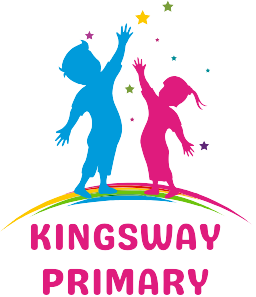Navigating the teenage years can feel like trying to solve a Rubik’s Cube blindfolded—frustrating and a bit chaotic. As parents watch their once-sweet little ones morph into eye-rolling, phone-obsessed enigmas, it’s easy to feel overwhelmed. But fear not! Help is on the way, and it doesn’t involve a magic wand or a secret handbook.
Table of Contents
ToggleUnderstanding the Challenges of Parenting Teens
Navigating the teenage years presents unique challenges for parents. Understanding these challenges can significantly enhance the parenting experience.
Common Issues Faced by Parents
Parents often encounter issues like communication barriers and mood swings. Trust becomes a sensitive topic, as teens seek independence while requiring guidance. Conflicts frequently arise over screen time and social media use. Additionally, academic pressures contribute to stress for both parents and teens. Resources exist to help manage these situations more effectively.
The Teenage Brain and Behavior
The teenage brain undergoes substantial changes affecting behavior and decision-making. Increased activity in the amygdala heightens emotional responses, making mood swings common. The prefrontal cortex, which governs impulse control, develops later, impacting judgment. Teens often engage in riskier behavior as they seek new experiences. Recognizing these developmental phases can foster empathy and guide parents in their responses.
Resources for Parents

Parents can access various resources to support them during the challenging teenage years. These materials offer insights and strategies aimed at easing the journey of raising teens.
Books and Guides
Books like “The Teen Whisperer” provide valuable communication techniques for connecting with adolescents. “How to Talk So Teens Will Listen” offers practical advice on resolving conflicts while maintaining trust. Guides focused on adolescent brain development help parents understand the emotional and cognitive changes their teens experience. Reading these resources fosters empathy and enhances relationships between parents and their children.
Online Communities and Forums
Online forums such as CafeMom and Reddit’s r/Parenting allow parents to share experiences and seek advice. Facebook groups dedicated to parenting teens offer a space for connection and support. Engaging in these communities enables parents to exchange tips and strategies in real-time. Finding shared experiences in online settings often alleviates feelings of isolation during challenging times.
Strategies for Effective Communication
Effective communication fosters a stronger relationship between parents and teens. Implementing specific techniques can enhance interactions and reduce misunderstandings.
Active Listening Techniques
Active listening remains essential in conversations. Parents should focus entirely on their teen during discussions without distractions. Acknowledging feelings shows understanding; phrases like “I see why you feel that way” validate emotions. Parents benefit from asking open-ended questions to encourage deeper sharing. For instance, instead of “Did you have a good day?” they might ask, “What was the best part of your day?” This prompts more detailed responses. Retaining eye contact also signals engagement. Reflecting on what’s said can clarify understanding and reinforce the teen’s perspective. Overall, employing these strategies leads to more productive and empathetic dialogues.
Establishing Trust and Openness
Building trust supports open communication. Establishing a safe environment where teens feel comfortable sharing is crucial. Parents can start by being non-judgmental, respecting their teen’s feelings and experiences. Sharing appropriate personal stories fosters connection, demonstrating vulnerability. Setting aside regular time for discussions solidifies open lines of communication, ensuring teens know they can approach their parents anytime. Encouraging honest feedback about family rules or expectations also empowers teens. Allowing them to express their opinions makes them feel valued. Engaging in activities together further strengthens bonds, creating natural opportunities for conversation. Prioritizing trust becomes vital for navigating the complexities of teenage life.
Seeking Professional Help
Navigating the teenage years can be particularly challenging for parents. Sometimes, seeking professional help becomes necessary to address specific issues.
When to Consider Counseling
Some situations signal the need for counseling. Persistent mood swings that impact daily life or academic performance may indicate deeper issues. Behavioral changes, such as withdrawal from family or friends, can also suggest a need for support. Also, if conflicts at home escalate frequently or communication breakdowns occur, professional intervention can offer new strategies. Recognizing the signs early may prevent more significant problems later on.
Finding the Right Therapist
Finding the right therapist is crucial for effective guidance. Start by looking for professionals specializing in adolescent issues, as their expertise ensures a better understanding of teenage challenges. Recommendations from trusted sources, like friends or pediatricians, can point you in the right direction. Additionally, researching online reviews and credentials helps in selecting qualified candidates. Prioritize finding someone your teen feels comfortable with, as rapport plays a significant role in the therapeutic process. An initial consultation can help gauge compatibility before committing to ongoing sessions.
Navigating the teenage years can be challenging for parents but it doesn’t have to be a solitary journey. By understanding the complexities of adolescence and employing effective communication strategies parents can foster stronger relationships with their teens. Utilizing available resources and seeking professional help when needed also plays a crucial role in addressing issues that arise during this period.
Parents should remember that they’re not alone in this experience. Connecting with others facing similar challenges can provide reassurance and valuable insights. Embracing this phase with empathy and support can lead to a more rewarding parenting experience and help teens thrive as they grow into independent individuals.



